SUSTAINABILITY
With DE1 TEA, we are not just crafting exceptional teas; we are cultivating
A MOVEMENT where every sip is a small, conscious step towards a more sustainable world. DE1 proudly announces that our freeze-dried tea powder capsules are a home-compostable, zero-plastic tea innovation. Our tea bags are biodegradable,
making us THE FIRST BRAND in the UK to offer these sustainable options.


We've made significant strides towards sustainability, achieving 100% recyclability in our products. Our commitment extends further with 99% of our offerings being compostable, biodegradable, or marine-degradable. We're actively working towards reaching the 100% mark, driven by our relentless dedication to a more eco-friendly future.

Our dedication to sustainability extends to every facet of DE1, including our packaging. Committed to leaving a minimal footprint, we've ensured that every element, from the outer packaging to compostable tea capsules, aligns with our eco-friendly ethos.

Breaking tradition, DE1 is at the forefront of innovation in both product form and packaging. Our commitment to sustainability is reflected in being the first to introduce marine-degradable tea powder capsules. We've pioneered freeze-dried tea powder, offering a delightful and convenient way to enjoy tea while minimising our environmental impact.


TEA CAPSULE

Outer Package:

· Packaging:
Special paper made from natural plant fibres
· Ink:
Eco-friendly soy ink
Inner Capsule:


· Ink:
Eco-friendly soy ink
· Capsule seal:
Aluminium
· Capsule:
Made from PHA and natural materials like cotton and wood

Certifications for PHA Material Used in Our Capsule:


OK Biodegradable - MARINE – Certified for safe biodegradation in marine environments.


OK Biodegradable - WATER – Certified to biodegrade in natural water environments.


OK Biodegradable - SOIL – Certified to naturally break down in soil, supporting soil health.


OK Compost - HOME – Certified compostable in home composting conditions.

DIN-Geprüft HOME Compostable –
Verified by DIN for home compostability, meeting European standards.

EFSA EU 10/2011 –
Meets European Food Safety Authority (EFSA) regulation 10/2011 for food contact materials.
FDA 21 CFR –
Complies with FDA Code of Federal Regulations Title 21 standards for food contact safety.

EFSA EU 10/2011 –
Meets European Food Safety Authority (EFSA) regulation 10/2011 for food contact materials.
Our PHA tea capsules are extensively certified,
demonstrating compliance with biodegradability standards across multiple environments and strict food contact safety regulations in both the U.S. and Europe. This ensures that our products are not only eco-friendly but also safe for consumers.
But Why is PHA So Special?


Why We Use PHA Tea Capsules Made of Biobased Material Compared to Traditional Plastic/Aluminium Packaging for Coffee Capsules:
· Biobased and Renewable:
PHA (Polyhydroxyalkanoates) capsules are made from biobased materials produced by microorganisms using fats or starches, derived from renewable resources.
· Biodegradability and Compostability:
Fully biodegradable and compostable, breaking down naturally without leaving harmful residues, significantly reducing environmental pollution.
· Lower Carbon Footprint:
Production processes for PHA materials are less energy-intensive, resulting in a lower carbon footprint compared to traditional plastic and aluminium.
· Eco-Friendly Production:
Produced through natural fermentation processes, minimising the use of harmful chemicals and reducing overall environmental impact.

· Health Benefits:
Free from harmful chemicals such as BPA, ensuring a safer product for consumers.
· Circular Economy:
Aligns with circular economy principles by using renewable resources and supporting composting and recycling, reducing landfill waste.
· Barrier Properties:
Provides excellent barrier properties to protect tea freshness and flavour without the environmental impact of plastic and aluminium.

Why Traditional Plastic and Aluminium Coffee Capsule Packaging is Harming the Environment
· Non-Renewable & Polluting:
Plastic capsules are made from petroleum-based materials, contributing to fossil fuel depletion. They are non-biodegradable and can take over 500 years to decompose, polluting oceans, rivers, and ecosystems.
· Microplastics & Health Risks:
Over time, plastic breaks down into microplastics, which contaminate the food chain and threaten marine life. Additionally, some plastic capsules contain harmful chemicals like BPA, which can leach into hot beverages, posing health risks such as endocrine disruption and cancer.
· Low Recycling Rates:
Plastic coffee pods are difficult to recycle due to contamination from coffee grounds and their small size. As a result, most plastic capsules end up in landfills or incinerators, further exacerbating pollution.

1. The Problem with Plastic Coffee Capsules
· Little is Recycled:
Manufacturers often claim that aluminium capsules are ‘widely recycled’, yet up to 95% still end up in landfills【2】. A 2020 study estimated that coffee capsules generate 576,000 tonnes of waste annually, with many taking over 500 years to fully decompose, contributing to long-term environmental pollution【1】【2】.
· Difficult to Recycle:
While aluminium is technically recyclable, its use in coffee capsules makes recycling highly challenging. Many roasters use multilayer packaging, where a thin aluminium layer is laminated or coextruded with materials like kraft paper or plastic【3】. These layers are difficult to separate, and most recycling facilities lack the equipment to process them【3】. As a result, many aluminium coffee capsules end up in landfills or incinerators, where they contribute to air pollution【3】.
Sources:
[1] World Coffee Portal – Aluminium vs Compostable Coffee Capsules (2024)
[2] Halo Coffee – Aluminium Coffee Pods & Environmental Impact
[3] MTPak Coffee – Sustainable Aluminium Coffee Packaging

2. The Problem with Aluminium Capsules

TEA BAG

Outer Package:

· Packaging:
Special paper made from natural plant fibres
· Ink:
Eco-friendly soy ink
· Glue:
Eco-friendly polyvinyl alcohol (PVA) glue
Inner Package:
· Filter Bag:
Wood pulp


· Filter Edge:
Food-grade paper
· Filter Cover:
Food-grade paper
· Card:
Special paper made from natural plant fibres
· Ink:
Eco-friendly soy ink
Why We Choose Paper Tea Bags:

· Biodegradability:
Our paper tea bags are fully biodegradable, breaking down naturally in the environment without leaving harmful residues.
· Renewable Resource:
Paper is made from sustainably sourced wood pulp, a renewable resource, ensuring that our tea bags have a lower environmental impact.
· Minimal Processing:
The production of paper tea bags involves minimal processing and chemical use compared to alternatives like PLA or plastic, reducing their overall environmental footprint.
· Safety and Purity:
Paper tea bags are free from harmful chemicals and microplastics, ensuring that the purity of your tea is preserved.


By choosing paper tea bags, we ensure that our packaging is as gentle on the planet as our tea is on your senses. This choice reflects our dedication to sustainability and our commitment to offering you a truly eco-friendly tea experience.

Why Not Single-Use Plastic?
· Environmental Pollution:
Our paper tea bags are fully biodegradable, breaking down naturally in the environment without leaving harmful residues.
· Microplastics:
Plastic tea bags can break down into microplastics, which can end up in your tea and, eventually, in your body. These tiny plastic particles persist in the environment and enter the food chain, posing health risks.

· High Carbon Footprint:
The production of plastic is energy-intensive and heavily reliant on fossil fuels, contributing significantly to greenhouse gas emissions and climate change.


Why Not Recyclable Plastic?

· Low Recycling Rates:
Even though recyclable plastic is intended to be reused, actual recycling rates are low due to contamination and the complexity of recycling processes. Much of it still ends up in landfills or the environment.
· Energy-Intensive Recycling:
The recycling process for plastic is energy-intensive and still contributes to carbon emissions. Additionally, plastic can only be recycled a limited number of times before it degrades in quality.
· Health Concerns:
Recycled plastic can contain traces of harmful chemicals from its previous life, posing potential health risks when used in products like tea bags.
Why Not PLA (Polylactic Acid)?
· Industrial Composting Requirement:
Despite being an option for many tea brands now, PLA, a bioplastic made from renewable resources like corn starch, requires industrial composting facilities to break down properly. Most home composting systems cannot effectively degrade PLA, leading to potential environmental issues if it ends up in landfills.
· Slow Degradation:
In environments lacking proper composting conditions, PLA can take a long time to break down, behaving similarly to traditional plastics.
· Resource-Intensive:
The production of PLA can be resource-intensive, requiring large amounts of agricultural land, water, and energy, which can impact food supply and increase carbon emissions.


Why Not Cotton Bags?
· Resource-Intensive Production:
Cotton requires significant water, pesticides, and fertilisers to grow, which can lead to soil degradation, water scarcity, and pollution.
· Higher Carbon Footprint:
The processing of cotton into fabric is energy-intensive, resulting in a higher carbon footprint compared to paper.


· Durability vs. Degradability:
While cotton is biodegradable, its durability and the resources required for production make it less environmentally friendly than paper, especially for single-use items like tea bags.
Why Not Silk Bags?
· Resource-Intensive Production:
Silk production is labour-intensive and requires significant water and energy, making it less sustainable compared to paper.
· Higher Environmental Impact
The environmental impact of silk cultivation, including the use of mulberry trees and associated agricultural practices, can be significant, especially when compared to more sustainable alternatives like paper.
· Animal Welfare Concerns:
Silk is produced from silkworms, raising ethical concerns regarding animal welfare, especially for consumers who prefer vegan or cruelty-free products.
· Cost and Accessibility:
Silk is a luxury material, making it more expensive and less accessible for everyday products like tea bags. This increases the environmental cost for a single-use item.



ALL PRODUCTS OUTER PACKAGE


·Sustainability:
1. FSC certified paper is sourced from responsibly managed forests, ensuring that the harvesting of trees maintains the forest's biodiversity, productivity, and ecological processes.
2. Made from natural plant fibres, which are renewable and biodegradable, contributing to a circular economy.
Why We Use FSC Certified Paper Made from Natural Plant Fibres Compared to Traditional Normal/Coated Paper:


· Reduced Environmental Impact:
1. Lower carbon footprint due to sustainable forestry practices and reduced use of chemicals.
2. Minimal impact on wildlife habitats and ecosystems, promoting biodiversity.
· Non-Toxic:
Free from harmful chemicals and heavy metals often found in coated paper, ensuring safer use for both consumers and the environment.
What Else?
· Recyclability and Biodegradability:
1. Easier to recycle compared to coated paper, reducing waste in landfills.
2. Biodegradable, breaking down naturally without leaving harmful residues.
· Improved Printability:
Provides excellent print quality, ensuring vibrant and clear packaging designs without the need for additional coatings that can harm the environment.
· Supporting Ethical Practices:
By choosing FSC certified paper, we support ethical labour practices and the protection of indigenous rights and local communities involved in forestry.



· Deforestation:
Sourcing from non-sustainable forests leads to deforestation, loss of biodiversity, and disruption of ecosystems.
· High Carbon Footprint:
The production of traditional paper is energy-intensive, contributing to greenhouse gas emissions and climate change.
· Chemical Use:
1. Often involves harmful chemicals and heavy metals in the manufacturing and coating process, posing risks to human health and the environment.
2. Coated paper can release toxic substances during recycling and decomposition.
· Non-Biodegradable Coatings:
1. The coatings on traditional paper are typically non-biodegradable, leading to long-term environmental pollution.
2. Coated paper is difficult to recycle, resulting in increased waste and strain on recycling facilities.
· Water Pollution:
The production process can contaminate water sources with chemicals and heavy metals, affecting aquatic life and water quality.
· Health Risks:
Exposure to chemicals used in traditional paper production can cause skin irritation, respiratory issues, and long-term health problems for workers and consumers.
· Reduced Recyclability:
Coated paper is harder to recycle due to the additional processing needed to remove coatings, leading to higher costs and increased waste.
Why Traditional Normal/Coated Paper is Bad for the Environment and Health:



By using FSC certified paper made from natural plant fibres, we commit to sustainability, ethical practices, and the health of our planet and people, reflecting our values and dedication to eco-friendly packaging solutions.

TEA BAG WRAP

Why We Use Unbleached Paper, Aluminium, and a Water-Based Coating for Our Paper Hanging Tea Bag Wrap
At DE1 TEA, sustainability is at the core of everything we do. Our Paper Hanging Tea Bag Wrap is made from 88% unbleached paper, 3% aluminium, and 9% water-based coating, offering a plastic-free, home-compostable packaging solution without compromising freshness or quality. Here’s why we chose these materials:
· Sustainable Sourcing:
We use unbleached paper, aluminium, and a water-based coating, carefully selected to reduce environmental impact. By avoiding fossil-fuel-based plastics and excessive chemical treatments, we create a more natural and sustainable tea packaging solution.
· Enhanced Barrier Properties:
Aluminum adds a layer of protection that blocks out light and oxygen, keeping tea fresh and flavorful for longer, while paper and the water-based coating maintain an eco-friendly footprint without compromising on quality.
· Biodegradability & Home Composting:
The unbleached paper component is biodegradable, breaking down naturally without harming the environment. The water-based coating enhances durability while ensuring the wrap remains home-compostable, making it a responsible choice for tea lovers.

· Reduced Carbon Footprint:
By using unbleached paper instead of plastic, we significantly cut down carbon emissions. Aluminium helps maintain the tea’s freshness with minimal environmental impact. The water-based coating replaces traditional plastic laminations, reducing waste and pollution.
· Health Benefits:
Our packaging is free from harmful chemicals like BPA and phthalates found in plastic. By using unbleached paper, aluminium, and a water-based coating, we ensure that no toxins leach into your tea—just pure, natural flavour.
· Home Compostability:
Unlike traditional plastic wraps that contribute to landfill waste, our wrap is home-compostable.

Why Traditional Plastic Packaging is Bad for the Environment and Health
· Non-Renewable Resources:
Made from petroleum, a non-renewable resource, contributing to the depletion of fossil fuels.
· Environmental Pollution:
Non-biodegradable, leading to long-term pollution in oceans, rivers, and landscapes, harming wildlife and ecosystems.
· High Carbon Footprint:
The production of plastic is energy-intensive, contributing to significant greenhouse gas emissions and climate change.
· Chemical Leaching:
Can release harmful chemicals such as BPA and phthalates, which can leach into food and beverages, posing health risks to consumers.

· Microplastics:
Breaks down into microplastics that persist in the environment, entering the food chain and posing risks to human health and marine life.
· Difficult to Recycle:
Low recycling rates due to the complexity of the recycling process and contamination, leading to increased waste in landfills.
· Environmental Degradation:
Contributes to the degradation of natural landscapes and marine environments, impacting biodiversity and ecosystem health.
· Health Hazards:
Exposure to chemicals used in plastic production can cause health issues, including endocrine disruption and cancer.
Made from unbleached paper, aluminium, and a water-based coating, our wrap is home-compostable, offering a plastic-free way to enjoy your tea. We are actively experimenting with innovative materials to enhance freshness while staying committed to sustainable packaging solutions.

OUR INK

Why We Use Eco-Friendly Soy Ink Compared to Traditional Ink

· Environmentally Friendly:
1. Soy ink is made from renewable soybeans, reducing reliance on petroleum-based products.
2. It significantly reduces VOC (Volatile Organic Compounds) emissions, helping to lower air pollution and the greenhouse effect.
· Sustainable Resource:
Soybeans are a renewable resource, unlike the non-renewable petroleum used in traditional inks.
· Biodegradability:
Soy ink is more biodegradable than traditional inks, making it less harmful to the environment.
· Recyclability:
Paper printed with soy ink is easier to recycle because soy ink can be removed more effectively during the de-inking process.
· Improved Print Quality:
Soy ink provides brighter and more vibrant colours, improving the quality and aesthetics of printed materials.
· Health Benefits:
Reduced VOC emissions mean lower exposure to toxic chemicals for workers and consumers, promoting better health and safety.
· Support for Local Farmers:
Using soy ink supports the agricultural sector, particularly local soybean farmers, contributing to the local economy.
· Compliance with Eco-Standards
Soy ink helps in meeting eco-friendly certifications and standards, enhancing the brand's credibility and appeal to environmentally conscious consumers.

By choosing eco-friendly soy ink, we commit to sustainability and environmental responsibility, aligning with our values and those of our eco-conscious customers.

Why Traditional Ink is Bad for the Environment and Health
· Petroleum-Based:
Traditional ink is made from non-renewable petroleum products, contributing to the depletion of fossil fuels.
· Toxicity:
Contains heavy metals and other toxic chemicals that can be harmful to both human health and the environment.
· Difficult Recycling:
Paper printed with traditional ink is harder to recycle due to the complex de-inking process, leading to increased waste.
· Energy Intensive:
The production of traditional ink requires significant energy, contributing to a higher carbon footprint compared to eco-friendly alternatives.
· Environmental Degradation:
The extraction and processing of petroleum for traditional ink contribute to habitat destruction, loss of biodiversity, and environmental degradation.

· High VOC Emissions:
It emits high levels of Volatile Organic Compounds (VOCs), which contribute to air pollution and the formation of ground-level ozone, leading to respiratory problems and other health issues.
· Non-Biodegradable:
Traditional ink is not biodegradable, leading to long-term environmental pollution as it persists in the ecosystem.
· Water Pollution:
During the production and printing process, chemicals from traditional ink can contaminate water sources, harming aquatic life.
· Health Hazards:
The toxic fumes and chemicals released during the printing process can pose health risks to workers and consumers, including skin irritation, respiratory issues, and long-term health problems.

OUR GLUE

Why We Use Polyvinyl Alcohol (PVA) Glue
Compared to Traditional Glue?
At DE 1, we prioritise sustainability in every aspect of our packaging. That’s why we’ve chosen eco-friendly Polyvinyl Alcohol (PVA) glue for sealing our tea boxes. Unlike traditional glues, which often contain harmful chemicals and contribute to environmental pollution, PVA glue is non-toxic, biodegradable, and water-soluble. It ensures a strong bond while minimising waste and reducing our carbon footprint. By opting for PVA, we’re able to offer you the freshest tea in packaging that’s kinder to the planet.

